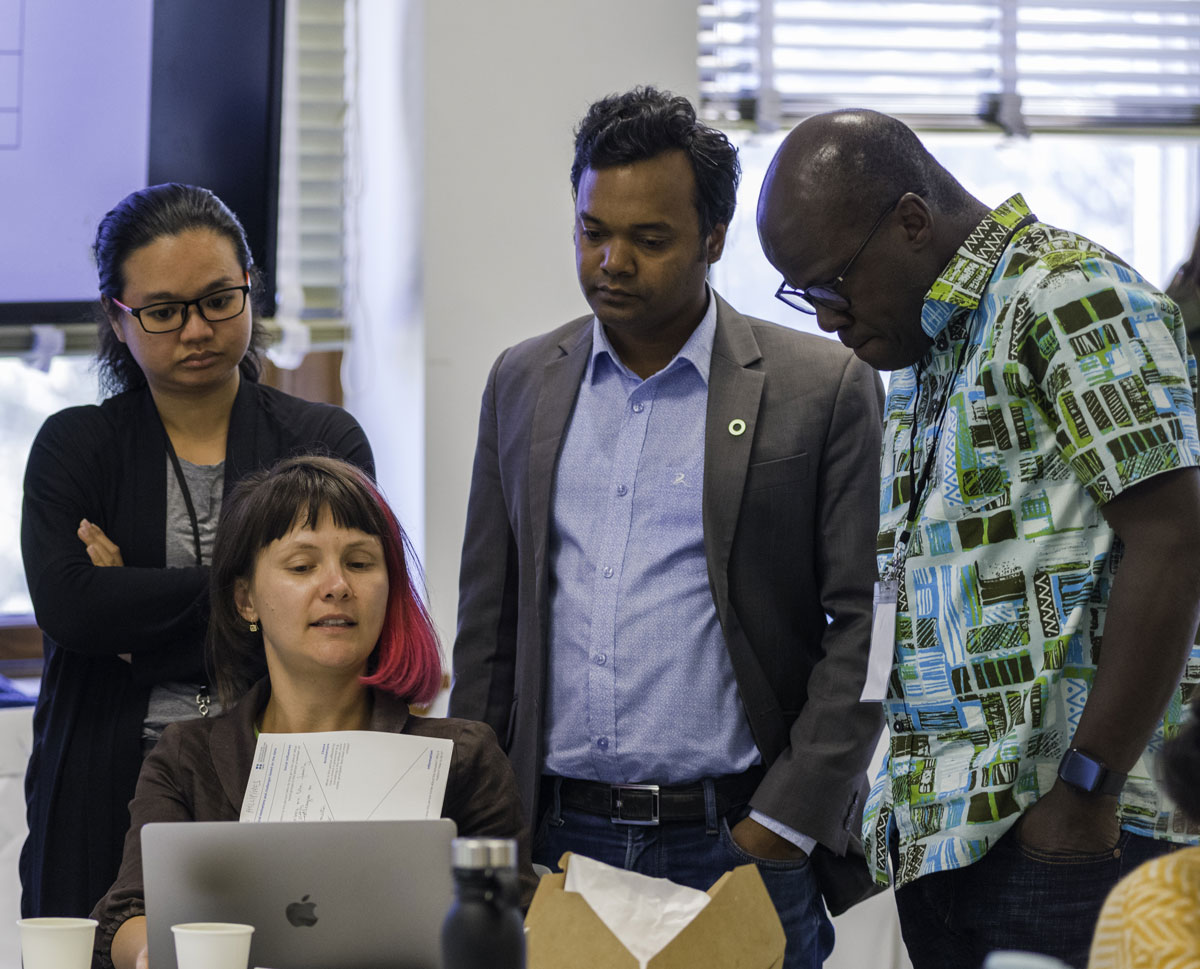Climate change is the grand challenge of our time, and meeting that challenge requires new leaders who can separate fact from fiction, who understand which actions make the biggest difference, and who know how to get things done.
The new Master of Climate Solutions (MCS) at UC Berkeley’s Rausser College of Natural Resources will empower the next generation of climate and sustainability leaders with the skills and knowledge needed to enact real solutions and create change. The 10 month, in-person program translates fundamental science and groundbreaking discoveries, enabling professionals to learn how to evaluate technologies, develop just climate strategies, and remove barriers to implementing practical climate solutions.
“The Master of Climate Solutions represents a critical step forward in expanding the interdisciplinary and highly interconnected community of practitioners needed to solve the climate crisis,” said David Ackerly, Dean of Rausser College of Natural Resources. “Students will be able to draw from the expertise of leading UC Berkeley faculty and researchers to address the many dimensions of the transition to a more just, inclusive, and ecologically friendly economy.”

Photo by Mathew Burciaga
The MCS presents a core curriculum in the natural and social sciences, training in analytical and quantitative skills, and applied exercises and engagements that emphasize adaptive thinking and problem-solving. Courses will be led by experts from the Department of Environmental Science, Policy, and Management, the Department of Agricultural & Resource Economics, and the Energy and Resources Group—top-ranked departments known for their faculty’s applied research in climate and sustainability action across policy and business.
“The ethos of the program is centered on positive change and practical action,” said Mio Katayama Owens, Assistant Dean of International and Executive Programs at Rausser College. “It is designed to bridge the gap between research, theory, and application.” Applications will open in fall 2024 for the first cohort beginning fall 2025.
Designed for professionals with three or more years of experience, the program offers hands-on learning opportunities, a focus on leadership and enacting real change, and a yearlong colloquium featuring guest speakers, excursions, applied exercises, and professional skills workshops. A unique leadership course on organizational, political, and societal change for climate solutions will prepare students to be change agents and leaders in businesses, nonprofits, and government agencies. Throughout its curriculum the program covers critical skills and knowledge areas such as climate data science, carbon accounting, and lifecycle analysis, as well as technological and nature-based solutions.
Students will have the option to select among three tracks: climate strategy and management, climate policy and politics, or one that is self-designed. All students will also participate in a year-long capstone program that gives students the opportunity to partner with real organizations across business, government, and non-profit sectors.
“New research on climate solutions is still critical, but we already know many of the things we need to do to address the climate challenge,” said James Sallee, a professor in the Department of Agricultural and Resource Economics and faculty director of the MCS program. “What we really need are people spread throughout society and the economy who are in a position to take action on climate, and who are equipped with the tools to make the right choices. Educating those students is the vision of the MCS program.”
Equity is a core priority woven throughout the curriculum of the MCS. “We know that the impacts of climate change often place the most burden on communities that have the least,” said Ackerly. “The MCS program has equity and climate justice at its core, with the goal of empowering leaders to find solutions that will protect those who need it most.”
Through a concurrent degree option, students can earn both the MCS and an MBA from UC Berkeley’s Haas School of Business—one of the world’s top business schools—in only five semesters. Haas has doubled down on sustainability under the leadership of Dean Ann Harrison, who has made integrating sustainability skills into the curriculum one of her top three priorities. To that end, the school is retooling all of its MBA core courses by the end of 2023 to incorporate thinking about climate change and other sustainability challenges throughout various business disciplines.
“Future business leaders will require a depth of training in both business and climate to work across disciplines and execute competitive strategies,” Harrison said. “This new program will provide a breadth of skill sets, equipping our grads to lead in building a sustainable, low-carbon future.”
Students in the concurrent MBA/MCS program will complete two summer internships, which allows for deep immersion in different disciplines and more time to build relationships and learn from the myriad resources, organizations, and companies focused on climate solutions on campus and in the greater Bay Area.
“Students in the concurrent program will be able to leverage the critical climate knowledge and tools taught in the MCS, as well as the leadership and business skills emphasized at Haas,” said Ackerly. “By pairing two world-class programs, we will be educating the leaders we need in business, government, and civil society to advance the low carbon economy transition.”
While applications for the standalone MCS program will open in fall 2024, application deadlines for the MBA/MCS first cohort are January 4th and March 28th, 2024. Learn more about the concurrent degree program at the Haas School of Business website.
